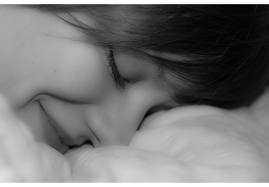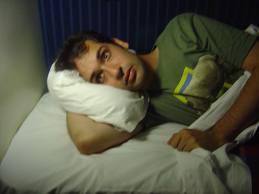How much sleep is enough after training?
A Guaranteed, Free and Easy Way to Improve Performance…
SLEEP
In a recent workshop we ran, every athlete was found to be SLEEP DEPRIVED. Find out how this can impact on your sporting performance here.
In that little training diary that any successful athlete keeps, will be a history of:
- the exercises they perform
- the weights they lift
- the foods they eat
- how they feel (RPE -rating of perceived exertion) and ….
- how much sleep they are getting
Why we document exercises, weights, nutrition and RPE and how they affect training and performance is well understood, but why do we keep a sleep diary?
Sleep has been shown to have a big impact on sporting performance as well as potentially changing the physiological effects of training.
This article aims to highlight the importance of sleep for athletes and how it affects training and performance.
Evidence of the effect of sleep on performance
Studies have shown that sleep deprivation has lasting negative impacts on health!
Sleep deprivation has an impact on the body’s metabolic and endocrine functions, with some of the effects listed below:
- Affect glucose metabolism and appetite (Van Cauter & Spiegel, 1999)
- Have a negative impact on the brain and cognitive function
- Reduced immune system
- Increase Cortisol levels (stress Hormone)
- Affect on growth Hormone
- Increased injury risk due to reduced muscular control
Dr. William C. Dement, a sleep researcher at Stanford University, suggests that:
“that alleviating the burden of sleep debt could save thousands of lives every year.”
Cheri Mah who has been studying the sleep patterns of Stanford University athletes over the last few years has found increasing sleep has led to improved sports performance for all types of athletes (Mah et al, 2009).
One specific study on University swimmers found increasing the athletes sleep to 10 hours a night improved their 15m sprint time, start reaction time and increased their kick strokes.
She also replicated these findings in American Football athletes with increased sleep improving their 20 yd shuttle time and 40 yd dash time.
With evidence that sleep deprivation can physiologically and psychologically affect individuals and evidence of increased sleep improving sporting performance, are you getting enough?
Why does sleep affect trainability and performance?
 Firstly and most importantly sleep is very important for recovery.
Firstly and most importantly sleep is very important for recovery.
Sleep deprivation has shown to
- increase cortisol levels,
- decrease activity of human growth hormone,
- and reduce the efficiency for glucose metabolism.
All of these things can affect our sporting performance (Samuels, 2009).
In addition when we are tired concentrating is hard and our reaction times are slower, not great for competition!
On top of these physiological changes sleep deprivation is also shown to reduce cognitive function and therefore reduce the ability to learn a new skill.
Effect of Glucose metabolism
So why is glucose metabolism important?
The energy we require for any exercise comes from the metabolism of glucose. If this source of energy isn’t readily available then our body is unable to perform at its best.
Food is our fuel but if we are unable to convert our fuel into energy then it becomes useless!
Sleep deprivation also impairs the ability of our body to store glycogen so our energy stores are depleted, something that will hamper your preparation prior to a big competition!
Effect of Cortisol
Cortisol is more commonly known as the stress hormone. Sleep deprivation has been shown to increase the levels of this particular hormone.
With cortisol the athlete will often feel irritable and short-tempered as well as have a lack of energy.
Effect of Human Growth Hormone (HGH)
Everybody knows rest and recovery are important or high-level performance as it gives the body time to repair and strengthen itself. HGH is the hormone responsible for stimulating this growth and repair.
HGH is actively required for this tissue repair by stimulating growth via cell reproduction and regeneration. It is naturally produced by the pituitary gland in the brain and is a protein based peptide hormone.
If our HGH levels are low or not doing their job properly then it can result in a decrease in muscle mass and energy levels.
Therefore with sleep deprivation affecting the efficiency of this hormone you can see why it is not great for sporting success!
Am I Getting Enough Sleep?
This is the big question and below are some guidelines to help you answer it.
It is recommended that adults get 7–9 hours of daily sleep and 9-10 hours of daily sleep for adolescents and teens!
If you fall asleep within 20 minutes of going to bed and wake without an alarm you are probably getting enough sleep say sleep experts.
However if you fall asleep as soon as your head hits the pillow and wake to an alarm you are probably sleep deprived!
So I will leave you with a few tips to ensure sleep is not a factor hindering yours or your athlete’s performance:
- Firstly and most importantly make sure you are getting enough sleep (hours highlighted above).
- You can achieve the above by prioritizing sleep as a part of your regular training regimen (noting it in your training diary).
- Go to bed and wake up at the same times every day, get into a pattern.
- Take brief 20-30 minute naps to obtain additional sleep during the day, especially if training hard.
- Increase your sleep time several weeks before a major competition to ensure you are not sleep deprived!
- Switch off your phone/ tablet an hour before you go to bed: the blue light can reset your circadian rhythm to a later time, making it harder to fall asleep.
I hope this article has highlighted the importance of sleep for athletes wanting to be at their best? It really is the #1 Recovery supplement
Sweet dreams…
Fran Low
For further information on how sleep deprivation can lead to overtraining, read our free ebook here
References
Van Cauter E, Spiegel K (1999). “Sleep as a mediator of the relationship between socioeconomic status and health: a hypothesis”. Ann. N. Y. Acad. Sci. 896: 254–61
Mah, C. (2008). Extended Sleep and the Effects on Mood and Athletic Performance in Collegiate Swimmers. Annual Meeting of the Associated Professional Sleep Societies.
Samuels, C. (2009). Sleep, recovery, and performance: the new frontier in high-performance athletics. Phys Med Rehabil Clin N Am. 20(1):149-59, ix.

This article is really interesting, great use of stats
Great work Fran: thanks. Of course, what would be really helpful is if you could take my kids away and let me sleep.
Seriously, I have learn the hard way that if I have less then 6 hours 3 nights consecutively, I have to cut down on training or it leads to illness.
Ha yeh life does sometimes get in the way! my sleep is currently being interrupted by an over excited puppy!
I have found this really interesting. I know getting enough rest/sleep is a vital part of an athletes program, or anyone training, but I have never thought about it in as much detail. It’s really useful. I have certainly seen the effects of the cortisol levels in some of the kids I teach (some short tempers sometimes) so I will check next time to see if they are getting enough rest, and not being a stroppy teenager :).
Thanks.
Gemma Robertson
I find this area of research really interesting and I enjoyed reading this article. It has made me consider the practical implications of sleep research with regards to the training of adolescent athletes. I recently heard a presentation given by Professor Russell Foster (Professor of Circadian Neuroscience) who explained the changes in sleep patterns which happen when children reach adolescence. Schools which delayed the start of lessons to be aligned with the adolescents bodyclock found improved cognitive performance and reduced absenteeism. Perhaps this is something that coaches should consider when scheduling training sessions with athletes in this age group?
Matt Durber
[…] Try our guide to sleep for athletes […]
[…] may not help physical recovery, but it can help deal with stress of competition, allowing better quality sleep, which will then assist physical […]
[…] Read our full guide on sleep for athletes. […]
[…] education is necessary: breakfast cereals, how much sleep is needed, recovery drinks, recovery strategies for […]
[…] when athletes are able to attend training, long school days (probably with inadequate nutrition and sleep) place a large amount strain on the body. This is not the best preparation for a training session […]
[…] tests include biomarkers that could be considered as monitoring or measurement. Height, weight, sleep, mood, skinfolds, heart rate, sympathetic nervous system can all be monitored regularly with little […]
[…] The Athlete’s guide to sleep. How much sleep you need as a sports person, and how to get more. […]
[…] Tapering, full restoration. speed. This part should not be longer than 2 […]
[…] only reason sleep and water are not promoted more as recovery tools is that no one makes money from them. What […]
[…] their screen devices, or staying up late to catch up on studies, means they don’t get enough REM sleep for […]
[…] Read more here about our recovery pyramid and how much sleep you need after training […]